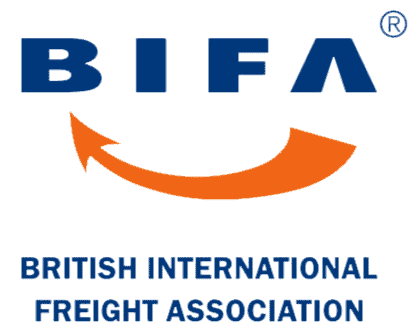Brexit Ready
How are import, export and freight forwarding between the UK and the post-Brexit European Union changing for you as 1 January 2021 approaches?
Why Brexit matters to freight forwarding
The best way we can help you is to highlight some important potential issues for importers and exporters. And invite you to contact us for information on the latest developments for moving freight to or from mainland Europe (or further afield) now that the Brexit transition period has ended.
Brexit means the UK has left the European Union (EU) and stopped being in the Single European Market or EU Customs Union alongside the 27 other EU members (the ‘EU 27’). The UK population voted to leave in the 2016 United Kingdom European Union membership referendum (aka ‘the EU referendum’ or ‘the Brexit referendum’). We left the EU at midnight on 31 January 2020.
The year 2020 has been a transition period that, as we now know, will extend beyond December 2020. After this, new rules come into play. Sending freight to Europe post-Brexit will be very different to what we have been used to. Depending on the UK Government’s ability to negotiate a trade agreement, this may mean tariffs will be payable on inbound and outbound goods. Besides, Brexit means that, when trading with non-EU nations, we will no longer enjoy EU-negotiated preferential terms. From 1 January 2021, we will also be setting our own import tariffs as well as defining new product standards and negotiating new trade deals around the world. It is a huge change that will impact freight forwarding – but, as ever, we are here to make everything as painless as possible.
Whether you are involved with air, sea or road haulage and Brexit, the following is a non-exhaustive selection of key points if you export or import. As things change, we will do our best to update this information. However, because everything changes so fast, please call or email for the latest advice on freight forwarding and Brexit.
For help or advice with any aspect of Brexit and freight forwarding, please call 01268 525444 or email us today.

Trading with the EU after Brexit
So you plan to import or export to or from the EU? Whether it is a pallet to Germany or a full load from Italy, there are going to be some changes to consider. With a deal being agreed on 24th December 2020 for a trade agreement, all freight movements between the UK and EU will be subject to new customs procedures. These will be in line with those currently applied to non-EU nations.
Fortunately for importers, the UK Government plans to simplify things by introducing new border controls in three stages between January and July 2021. However, though the UK intends to apply this phased approach to introducing import clearance procedures, the 27 EU countries have no plans for a similar ‘light touch’ approach. They will apply import clearance procedures to goods from the UK from 1 January 2021.
I am exporting TO the EU after 31 December 2020
After this, goods leaving the UK will need an export declaration before they get export clearance. Historically, this was done (usually by customs agents or freight forwarders) on HMRC’s Customs Handling of Import & Export Freight (CHIEF) system. Eventually, CHIEF will be replaced by a new Customs Declaration Service (CDS) for exports to the EU.
**IMPORTANT – if you have not got one, you need to apply for an Economic Operator Registration and Identification (EORI) number on the GOV.UK website. By the way, your EU-based customer needs to know that they cannot use UK-issued EORI numbers in EU countries after Brexit. They will need an EORI number issued in their own country or another EU nation.
Post-Brexit export checklist
Here are some questions to ask if you will be exporting to the EU after Brexit:
- Do I have an EORI number? If not, please get one and remember that only EORI numbers with a ‘GB’ prefix will be valid after Brexit. An active EORI number is compulsory for customs clearance of all goods entering or leaving the UK. Your EU-based customers will also need an EU EORI number.
- Have you researched and identified the correct commodity codes for export shipments?
- Will your contract terms for customers change? This particularly applies to Incoterms (international commercial terms) that simplify trade between EU countries (the latest version, Incoterms® 2020, was introduced recently). There are 13 Incoterms, ranging from the generally applicable DDP and DAP to FAS, FOB, CFR and CIF used for sea freight. After Brexit, your use of Incoterms may need to change because of their impact on post-Brexit import duty liability, VAT settlements and import clearance costs.
- How much will any newly-required export declarations cost? As your freight forwarder, we can advise.
- Are any long-term supplier declarations (LTSDs) still up-to-date? In particular, please remember that post-Brexit, products originating in the UK will no longer be ‘of EU origin’. Equally, EU Certificates of Origin will no longer be valid, which could affect your customers’ relationships with their customers.
- Do accompanying export documents (including compliant commercial invoices) include all required product definitions, weights, dimensions, EORI numbers and HS codes? Do you need to change anything? Do not forget special instructions either: though not legally required on invoices, they must still be supplied if required.
- Will your exports be subject to an EU import tax levy? Do your export customers currently benefit from nil-rate or lower-rate tariffs because of the EU’s free trade agreements? These will not apply after Brexit.
- Which CPC (Customs Procedure Code) will apply to your exports?
- Do you understand the effect of the Kent Access Permit System (KAPS) for post-Brexit haulage – and its implications as you send freight to Europe after Brexit?
For help or advice with Brexit freight shipping, please call 01268 525444 or email us today.
I’m importing FROM the EU after 31 December 2020 – The same applies if goods move the other way and import declarations will have to be made before goods are released.
Post-Brexit import checklist
Here are a few important questions to consider if you are importing from the EU after Brexit:
- Do you have an EORI number? If not, please get one and remember that only EORI numbers with a ‘GB’ prefix will be valid after Brexit. EU businesses that you deal with the will of course need an EU EORI number.
- Have you identified the value and quantity of import transactions you will be making and the applicable post-Brexit duty rates?
- Are your supplier’s commercial invoices accurate and complete, with all required details for import declaration purposes. It is worth checking now because more information will be needed after Brexit.
- Will existing nil-rate and lower-rate tariffs still apply if you cannot benefit from existing EU free trade agreements?
- Do you need a Duty Deferment Account? If you do not have one, but will import regularly from the EU, this could be helpful. That is because it allows payment of customs duty, excise duty, and import VAT by monthly direct debit rather than at the point of entry for each import.
- Do you import into the UK and then export to third countries? If so, you need to be current with relevant commodity codes.
- Are you VAT registered? If so, you can use postponed VAT accounting for imports from 1 January 2021. Alternatively, you can use a supplementary declaration. Businesses that are not VAT registered, and those choosing not to use postponed VAT accounting, will have to account for VAT through normal customs processes.
- Do you need to use an intermediary, such as a freight forwarder, to help with customs declarations? If so, that is another chunk of admin that you do not need to worry about. However, if you will be making declarations yourself you will need access to the relevant HMRC systems and software.
Excise goods, prohibitions and restrictions, and controlled goods
Whether you are importing or exporting between the UK and the EU27, expect ongoing changes to rules concerning excise goods, import and export licensing, and controlled goods.
Temporary imports and multiple duty
Do you import materials and components from EU countries and then export finished goods back to the EU? Maybe you temporarily move goods between the UK and other EU countries? Come January 2021, everything will change so you will need to know how best to use facilities such as Inward Processing Relief, customs warehousing and ATA carnets – and when it makes economic sense just to pay the duty instead.
Find a freight forwarder you can trust
As you tackle the new challenges of post-Brexit import and export, one of your best allies is a trusted, experienced, freight forwarder.
As we work together, we will guide you through the complexities of coding export goods using Harmonised System (HS) codes or commodity codes. We will also help you navigate Temporary Import Tariffs, use correct Customs Procedure Codes (CPC) and ensure accurate, compliant commercial invoices. We can also advise on your insurance and liability responsibilities in case something goes wrong in transit.
It’s also essential to keep accurate records for at least four years (six if you are VAT registered).
Working with us as your freight forwarder
When we work together, whether it is small post-Brexit pallet deliveries or a massive one-off industrial load, we will need the following information at the start of the freight forwarding process:
- A copy of the commercial invoice (NOT a Pro-forma).
- A Master Reference Number (MRN) if we are handling haulage while you handle import/export entry yourself.
- Details of your UK customs agent (if not us). To simplify things, how about letting us be your broker/direct representative? And while we are at it, will you clear goods on-site (we will need to know your ‘customs office of destination’) or at our hub?
- If required, and we are not managing your duty deferment account for paying import taxes, we will also need account details and written authority (on your letterhead, including your deferment approval number) so we can act as your direct representative.
- Customs Procedure Codes (CPC) – expressed as either a seven-digit number or a six-digit number and a letter, these are administrative shorthand for the purpose of your shipment. Ultimately, they determine if, how, when and from whom duties and taxes are collected.

As Barrington Freight’s Business Manager, Simon Poole, explains: ‘Whether you call it Brexit or EU Exit, this new phase in the relationship between the UK and the EU27 will be complicated, continuously evolving and challenging. Fortunately, we’re here to help. Whether it’s airfreight and Brexit, sea freight or Brexit road haulage, from CDS and the Smart Freight System, to Incoterms, and DAP, we’re experienced post-Brexit freight forwarders who can smooth the way you import and export.’
For help or advice with any aspect of post-Brexit haulage, importing, exporting and freight forwarding, please call 01268 525444 or email us today.


